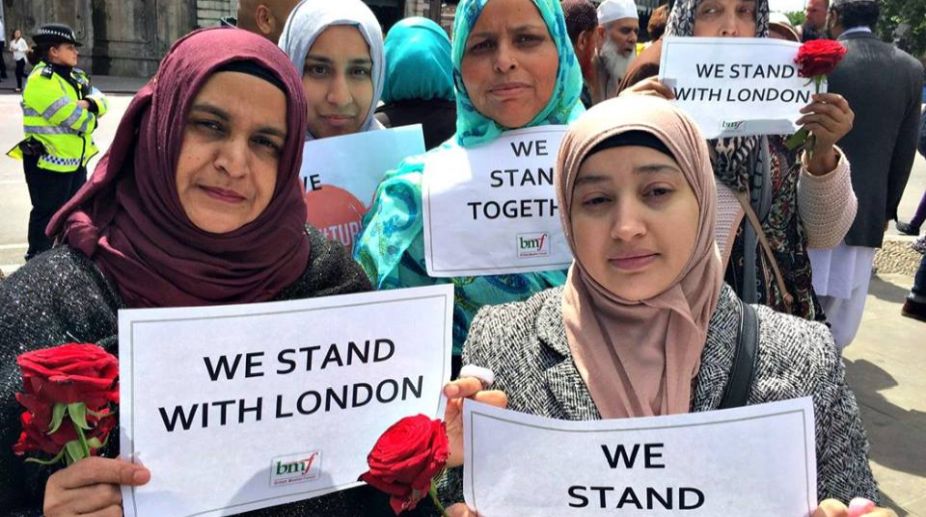Secret service “could have stopped” Manchester bombing: Report
Officials from Britain’s secret service MI5 missed key intelligence warnings that could have stopped the Manchester Arena terror attack, a…

(Photo: Facebook)
There’s a familiar refrain every time a Muslim militant commits an attack in the Western world: The community should have done more; the attacker’s family, friends and social networks should have seen the warning signs and warned the authorities.
This is a legitimate concern; certainly it is the duty of Muslim communities to report possible radicalisation among their members with an aim to preventing terror attacks that will claim the lives of innocents and further stigmatise an increasingly marginalised group.
Advertisement
In tandem, questions are asked as to why there are no Muslim voices joining in the chorus of condemnation. This too is a valid question; why shouldn’t Muslim communities loudly condemn terrorism in the name of their own faith, especially when you consider the vast majority of the victims of such murderous groups also happen to be Muslims of various denominations.
Advertisement
The condemnation is there if you look for it: after the London Bridge stabbings, some 500 British imams refused to perform funeral prayers for the attackers, condemning them as vile murderers.
The British Muslim Forum has declared that extremist views are not “welcome in our mosques or in our communities”. But condemnation after the event is easy to do and doesn’t have to be sincere.
The real test of the community is in identifying and reporting such elements before they commit violence, so let’s see how the British Muslim community performed.
The Manchester bomber Salman Abedi was reported to authorities five times in five years. Akram Ramadhan, a member of the Libyan community in Manchester, told reporters that Abedi had been banned from the local mosque after he confronted an imam who was giving a sermon against extremism.
The imam himself recounts that while he was giving a sermon against the militant Islamic State (ISIS) group, Abedi looked at him with a “face of hate”. The subsequent exchange of words led to Abedi’s expulsion from the mosque and to members of the community reporting him to the authorities.
Two of Abedi’s own friends flagged him as a potential terrorist when he expressed the view that being a suicide bomber was okay, and separately called the national anti-terrorism hotline to report him, once five years ago and once last year. According to Mohammed Shafiq, chief executive of the Ramadhan Foundation, none of the complainants heard back from the authorities, though he was led to believe that Abedi had been placed on a watch list.
According to a US official, members of Abedi’s own family had also reported him and, more damningly, MI5 was reportedly warned by America’s FBI as early as January that Abedi was part of an ISIS cell that was planning attacks in England.
As expected, UK security forces are now investigating why these warnings were not taken seriously enough. But even more curious is the case of Abedi’s father, Ramadhan Abedi, who was a member of the Libyan Islamic Fighting Group (LIFG), a sometime Al Qaeda-linked group which was set up in the early 1990s with the aim of toppling Qadhafi.
After trying and failing to kill Qadhafi several times (with support from MI6, some claim), the group was defeated by Libyan forces in 1998 and its cadres fled to Sudan, Afghanistan and Iraq.
Others like Ramadhan moved to Britain and settled in cities like Manchester, which one resident of Libyan origin calls Libya’s second capital.
Ramadhan eventually returned to Libya to participate in the revolt that overthrew Qadhafi. Curiously, though the LIFG had been designated a terror group by the US in 2004 and the UK in 2005, its members in the UK were allowed to travel back and forth from Libya despite technically being on a travel ban.
UK media spoke to one such person who, despite being under house arrest, was allowed to travel to Libya to fight Qadhafi. “I was allowed to go, no questions asked.”
Another British fighter being prevented from returning to the UK said the MI5 sorted it and that he was then allowed to re-enter the UK. Political scientist Gilles Kepel explains it by saying they gave shelter to radical Islamist leaders from around the world as a sort of insurance policy against jihadi terrorism.
Libyan journalist Reda Fhelboom says the Manchester attack was entirely predictable and that “Britain has harboured extremists and now it is paying the price”.
Having such groups around is useful: they are watched, used and deployed as needed, protected while needed (there are claims that MI5 prevented police from acting against hate preacher Anjem Chaudhry many times) and disposed of when no longer useful.
Unfortunately, as we know rather well, providing safe havens to militants and sheltering proxy armies comes with a price paid in blood by one’s own citizens.
Dawn/ANN.
Advertisement